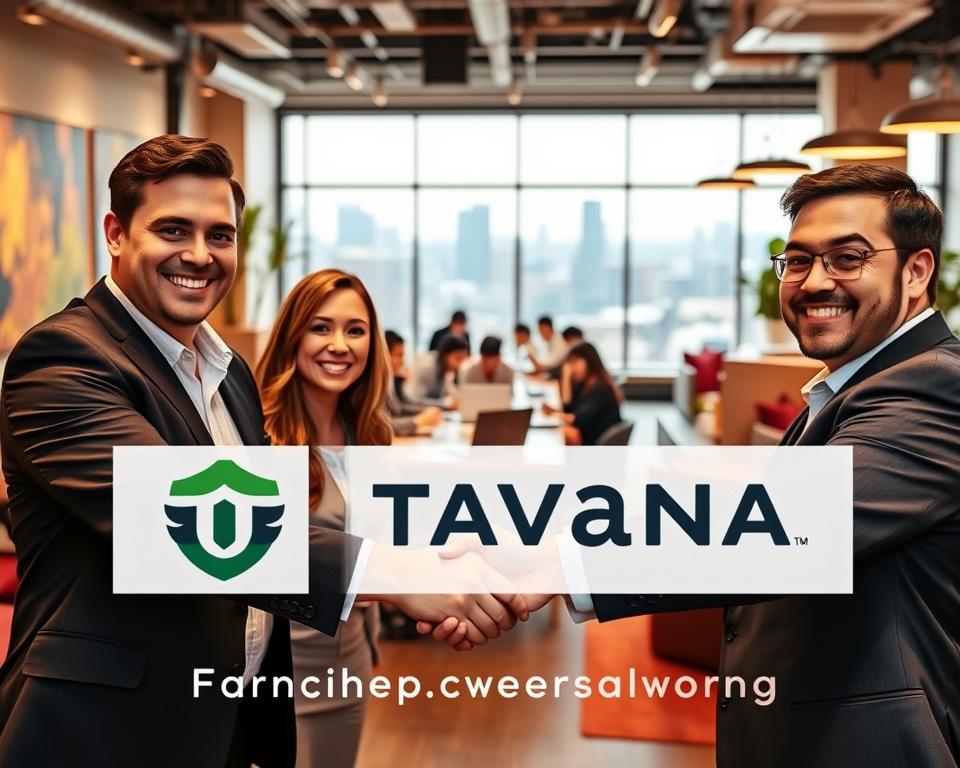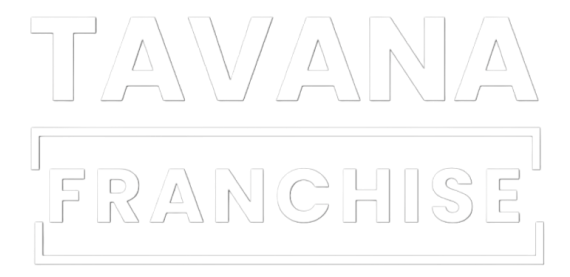Thinking about franchise ownership? It’s important to look at both sides. Franchising gives you freedom and support, making it a favorite choice for many. As you check out franchise opportunities, knowing the good and bad is key to a smart choice.
Looking at the franchise business benefits and downsides helps you see if it fits your goals. To do well, you need to really understand franchising. If you want to learn more or find the right franchise, Tavana Franchise consultants are here to help every step of the way.
Key Takeaways
- Understanding the pros and cons of franchise ownership is crucial for making an informed decision.
- Franchising offers a blend of independence and support.
- Weighing the benefits and risks is essential to determining if franchising is right for you.
- Personalized guidance from franchise consultants can help navigate the process.
- Examining franchise business benefits and drawbacks is vital.
Understanding the Franchise Business Model
Thinking about investing in a franchise? It’s key to grasp the business model and its parts. A franchise lets someone or a company (the franchisee) run a business with a well-known brand’s name and model.
What Defines a Franchise?
A franchise links the franchisor (the brand owner) with the franchisee (the one running the business). The franchisor gives the franchisee training, marketing help, and how-to-run-the-business guidance.
Key Components of the Franchisor-Franchisee Relationship
The bond between franchisor and franchisee is about teamwork. The franchisor offers established brand recognition, proven business systems, and ongoing operational support. The franchisee must follow the franchisor’s business model and rules.

The Current Franchise Landscape in the United States
The franchise world in the United States is wide and getting bigger. With new brands popping up and old ones growing, the market keeps changing.
Knowing the franchise model is vital for a smart investment choice. By understanding the franchisor-franchisee relationship and the franchise industry’s state, you can weigh the franchise business benefits and drawbacks better.
The Pros and Cons of a Franchise: An Overview
Exploring franchise opportunities means looking at both the good and the bad. It’s key to decide if franchising fits your goals. Franchising is great for brands with a solid track record.
Why Franchising Continues to Grow in Popularity
Franchising is popular because it can lead to success. It also comes with support from the franchisor. Entrepreneurs like it because it offers a tested business model and brand recognition.
The International Franchise Association says franchising is growing. More industries are seeing more franchises. This growth is due to franchising’s benefits, like training and ongoing support.
Common Misconceptions About Franchise Ownership
Many think franchising is a sure way to success. But, it takes hard work and dedication. As franchise expert Michael E. Gerber says, “The franchise model is not a magic bullet; it’s a business that requires management and care.”
“The biggest risk is not the unknown, but what you take for granted.” –
Setting Realistic Expectations
To do well in franchising, you need to know what to expect. Understanding the franchise model benefits and drawbacks helps you make a smart choice.
| Franchise Ownership Aspects | Benefits | Drawbacks |
|---|---|---|
| Initial Investment | Access to established brand | High upfront costs |
| Ongoing Support | Comprehensive training | Ongoing fees |
| Business Operations | Proven business system | Operational restrictions |
Knowing the pros and cons of franchising helps you navigate its opportunities and challenges. As you consider the franchise opportunities strengths weaknesses, think about your own strengths and goals. This will help you decide if franchising is right for you.

Case Study: Success Stories in Franchise Ownership
Success in franchise ownership comes from careful planning and market research. It also depends on following established systems. Looking at successful franchise owners’ journeys can teach us a lot.
Profile: From Corporate Employee to Successful Multi-Unit Franchisee
Jane Doe went from a corporate job to owning many franchises. She used her marketing skills to succeed. She credits the franchisor’s training and her local market knowledge for her success.

Industry-Specific Success Patterns
Success in franchise ownership varies by industry. In food service, location and brand are key. Service-based franchises focus on customer service and scaling operations.
Key Factors That Contributed to These Successes
Several factors help franchise owners succeed. These include:
- Adherence to Systems: Following the franchisor’s systems is crucial for quality and consistency.
- Market Research and Location Selection: Knowing the local market and picking the right spot are vital for attracting customers.
- Effective Team Building: A skilled and motivated team is essential for great customer service and efficiency.
Adherence to Systems
Following the franchisor’s systems ensures your business runs smoothly. This means sticking to their operational, marketing, and customer service plans.
Market Research and Location Selection
Good market research and location choice are key to success. You need to know what locals want, understand the competition, and pick a spot that’s easy for your customers to find.
Effective Team Building
Having a strong team is crucial for quality service. This means hiring the right people, training them well, and creating a positive work environment that keeps them happy and engaged.
Major Advantages of Franchise Ownership
For those who dream of starting their own business, franchising offers a clear path. It reduces the risks of starting from scratch. By joining a franchise, you get a detailed business plan to help you grow and make money.
Established Brand Recognition and Marketing Support
One big plus of owning a franchise is the brand recognition it comes with. You get a name that people trust right away. This means you don’t have to spend as much on marketing to get customers.
Franchises also get help with marketing from the company that owns the brand. This includes big advertising campaigns and materials. It can save you a lot of money.
As a franchise expert says, “The power of a brand is huge. It’s the difference between a known business and a new, unknown one.”
“Brand recognition is key in today’s market. It draws in customers and keeps them coming back.”
Proven Business Systems and Operational Support
Franchisors give you a tested business model. This includes how to run the business, manage it, and serve customers. These systems help your business run well and avoid costly mistakes.

Training Programs and Ongoing Education
Franchise systems offer detailed training for new owners. This covers everything from running the business to marketing. They also keep you updated with the latest in your franchise.
- Initial training programs
- Ongoing operational support
- Marketing and advertising assistance
Purchasing Power and Supply Chain Benefits
Franchisees get to buy goods and services at lower prices because of the network’s buying power. This can save you a lot of money and make your business more profitable.
| Benefits | Description | Impact |
|---|---|---|
| Brand Recognition | Instant credibility with customers | Reduced marketing costs |
| Proven Business Systems | Efficient operations and management | Increased profitability |
| Training and Support | Comprehensive training and ongoing assistance | Improved performance |
| Purchasing Power | Discounted rates on supplies and services | Cost savings |
By using these benefits, franchise owners can build a successful business. They can reach their goals with the help of a strong brand and a solid business plan.
Significant Challenges and Drawbacks of Franchising
Franchising has many benefits, but it also comes with big challenges. Knowing these can help you decide if franchising is right for you.
Initial Investment and Ongoing Fees
Buying a franchise costs a lot upfront. This is more than starting your own business. You also pay fees like royalties and marketing contributions. These can cut into your profits.
The cost to start a franchise can be from $20,000 to $50,000 or more. You’ll also pay royalties, which can be 4% to 8% of your sales. These costs are important to consider when planning your finances.
Operational Restrictions and Creative Limitations
Franchise agreements have strict rules on how to run your business. These rules help keep things consistent but can limit your creativity. You might not be able to try new marketing ideas or offer certain products.
- Standardized business operations
- Limited flexibility in product or service offerings
- Restricted marketing and advertising strategies
Dependency on Franchisor Decisions
As a franchisee, you rely on the franchisor’s decisions. This includes things like pricing and marketing. While this can be helpful, it also means you have less control over your business. If the franchisor’s decisions don’t work for your area, it could hurt your sales.
Territory and Competition Concerns
Franchise agreements often protect your territory from other franchisees. But, this protection isn’t always complete. You might still face competition from other brands or independent businesses. It’s important to understand the protection your agreement offers.
Knowing the challenges of franchising can help you prepare. It’s key to deciding if this business model is right for you.
Case Study: Navigating Franchise Challenges
Starting a franchise can be tough, but many have made it work. Any business partnership, where one side has more power, can be risky. Yet, learning from successful franchisees can teach you how to avoid common pitfalls.
How Successful Franchisees Overcame Common Obstacles
Successful franchisees say good communication with their franchisors is key. Keeping the lines open helps solve problems fast and use the franchisor’s knowledge to their benefit.
They also focus on being different in their local market. By knowing their area well and offering unique services, they attract and keep customers.
Lessons Learned from Franchise Failures
Franchise failures often happen when people don’t understand the agreement or plan their finances poorly. It’s important to read the Franchise Disclosure Document (FDD) carefully and get legal advice if needed.
Strategies for Mitigating Common Risks
To avoid risks, franchisees can use a few strategies:
- Effective Communication with Franchisors: Keeping in touch and talking openly can prevent big problems.
- Building Local Market Differentiation: Knowing what locals want and adapting your business can make you stand out.
- Financial Management Best Practices: Good financial planning lets you track your success and make smart choices.
Effective Communication with Franchisors
Talking regularly with your franchisor can give you insights into marketing, how to improve, and new products.
Building Local Market Differentiation
By making your franchise unique through local marketing and customer service, you can establish a strong presence.
Financial Management Best Practices
Having strong financial controls and checking your finances often helps you stay on course and reach your goals.
Financial and Legal Considerations for Franchise Investors
Understanding the financial and legal sides of franchise ownership is key. It helps you make a smart investment choice. Knowing the financial and legal aspects is crucial.
Understanding the Franchise Disclosure Document
The Franchise Disclosure Document (FDD) is a must-read for potential franchisees. It gives detailed info on the franchise, like its business model, fees, and what you’ll have to do. It’s important to read the FDD well to know the franchise agreement’s terms.
The FDD shows the initial investment, ongoing fees, and other financial duties. Also, check the franchisor’s financial reports and legal history. This info helps understand the franchisor’s stability and possible risks.
Typical Investment Structures Across Different Industries
Franchise investment structures vary by industry. For example, a fast-food franchise might need less money than a hotel franchise. Knowing these differences helps compare potential returns across different franchises.
| Industry | Initial Investment | Ongoing Fees |
|---|---|---|
| Fast Food | $50,000 – $200,000 | 4% – 8% of sales |
| Hotel | $1,000,000 – $5,000,000 | 5% – 10% of sales |
| Retail | $20,000 – $500,000 | 3% – 7% of sales |
Legal Obligations and Contractual Commitments
The franchise agreement spells out your legal duties and what the franchisor can do. This includes the franchisor’s control over your finances. It’s important to understand these terms to avoid legal issues.
“The franchise agreement is a legally binding contract that outlines the terms and conditions of the franchise relationship. It’s essential to review this document carefully with the help of a qualified attorney.”
Comparing ROI: Franchises vs. Independent Businesses
When thinking about franchise ownership, compare its ROI to that of independent businesses. Franchises offer brand recognition and support. Independent businesses give more freedom and might have lower fees.
Do a detailed financial analysis. Look at the initial investment, ongoing fees, and expected earnings. This helps decide which option might give you a better ROI.
How to Evaluate if Franchising Is Right for You
Before you start with franchising, it’s key to know yourself well. You need to understand your strengths, weaknesses, and if you have enough money. It’s about checking if franchising fits your skills, money situation, and what kind of business you like.
Self-Assessment: Skills and Personality Traits
Knowing your skills and personality is very important. Think about if you’re good at managing, have business smarts, and can stick to a plan. Key traits include:
- Strong leadership and management skills
- Ability to work independently
- Good communication and customer service skills
Financial Readiness Evaluation
Checking your finances is a big step. Look at how much money you need upfront, ongoing costs, and if you’ll make money back. A thorough financial assessment will show you what owning a franchise means for your wallet.
| Financial Component | Description | Typical Cost |
|---|---|---|
| Initial Investment | Initial fee, equipment, and inventory | $50,000 – $500,000 |
| Ongoing Fees | Royalties and marketing fees | 5% – 10% of revenue |
Industry and Brand Selection Criteria
Picking the right industry and brand is crucial. Think about what you like, if there’s demand, and who your competitors are. Researching the brand’s reputation and market trends is smart.
Working with Franchise Consultants Like Tavana
Benefits of Professional Guidance
Franchise consultants like Tavana offer great advice. They guide you through finding and choosing a franchise.
How Tavana Helps Match You with the Right Opportunity
Tavana’s knowledge ensures you find a franchise that matches your skills, money, and goals. Their tailored approach makes finding a franchise easier.
Conclusion: Making an Informed Franchise Decision
Investing in a franchise needs careful thought. You must weigh the good and bad sides of franchising. This helps you choose wisely, matching your goals and what you can afford.
Franchise ownership has its pluses. You get a known brand, a tested business model, and support from the franchisor. But, there are downsides too. These include the cost to start, rules you must follow, and having to rely on the franchisor.
To do well in franchising, know the pros and cons well. Decide if you can handle the challenges for the benefits. If you’re interested in franchising, talk to Tavana Franchise consultants. They can help you understand the pros and cons better.

